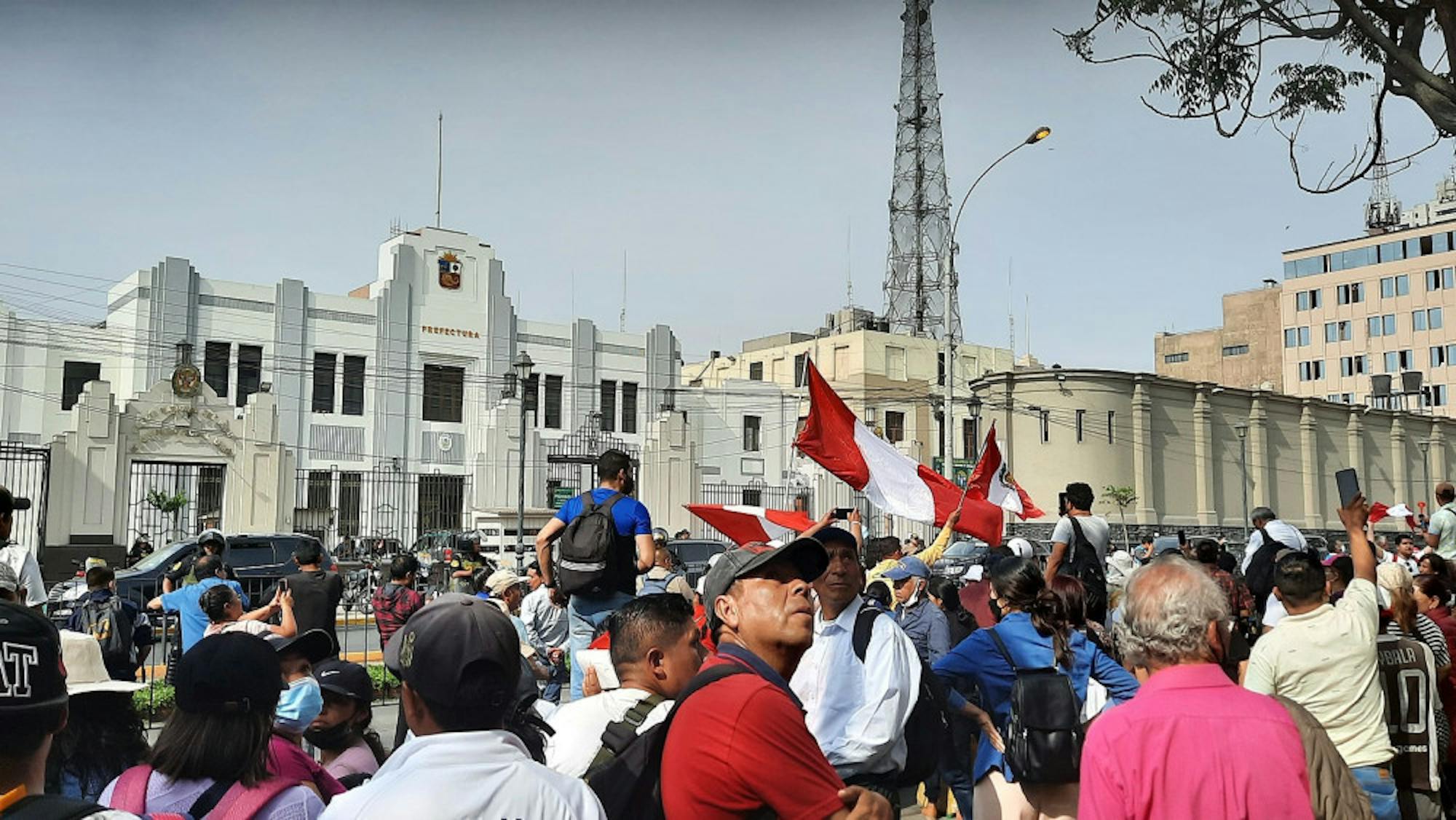On Dec. 7, 2022, the people of Peru were shocked to watch a presidential announcement on their televisions declaring the dissolution of Congress and the establishment of an “emergency government.” In an effort to remain in power, President Pedro Castillo resolved what could be deemed as a ‘self coup d’etat,’ hindering the legislature’s rumored plans of impeachment due to irregularities in his mandate.
After the president’s proclamation, almost all ministers and members of his cabinet quickly resorted to social media and the press to declare the resignation from their respective positions. Additionally, many also took the chance to condemn Castillo’s decision, denouncing his effort as unconstitutional and a violation of the long-standing democracy in Peru. Even Castillo’s vice president, Dina Boluarte, gave a decisive blow to his image when reprimanding his counterpart.
Without the support of the military or police forces, Castillo was unable to prevent the congressional session, which voted for his immediate removal in almost complete unanimity at 1:55 p.m. Soon after, President Castillo was arrested by the national guard, stripped of his title and placed in custody — a decision that came to the great relief of the country as well as the international community. Almost four hours later, Boluarte was sworn in as Peru’s first female president until the next election comes; it was a rather disconsolate condition on which the country finally attained female representation in the highest executive office.
Nonetheless, those two long hours between the presidential pronouncement and Castillo’s arrest engendered a massive wave of panic throughout the whole country as well as the international community, especially among neighboring countries who were all in anguish for what this attack on democracy would result in. Embassies in Lima, including the United States’, joined forces to attack the president and implore the remaining government to protect the reputation of its republic.
The question remains, however, of what the atrocious consequences would have been if Castillo’s coup d’etat had succeeded. Not only would it have created enormous political instability inside Peru, deeply damaging the country’s economic capability and social well-being, but it also would have harmed the credibility of the many other democracies in South America, as they are almost always grouped together under the global public’s eye. Besides, the completion of a coup would have created an extremely dangerous precedent in contemporary times for the executive branch in the world’s democracies to clinch power when their position is in jeopardy.
Nevertheless, this scenario would not have been a new precedent in Latin American governments. The region in the 20th century was marked by a vast array of authoritative and self-proclaimed leaders. Take, for example, Pinochet from Chile or Pinilla from Colombia. Both governments constituted oppression, unrest and great political uncertainty, which depicts a recurrent pattern in the young and troubled states of the new world. The latter type of mandate has kept South America in a constant state of turmoil and undevelopment, and it has provided the right conditions for their resources and wealth to be exploited by other, ‘more advanced’ nations, probing on the idea that the world wants the instability to remain.
It would be ignorant to dismiss the many shows of disinterest from the global public eye on Peru’s precarious situation. Besides reporting on the initial facts, many of the biggest news broadcasters and newspapers around the world have been quick to leave Peru’s news behind or with barely any prioritized exposure, not making headlines on first pages of popular newspapers nationally. How different would the coverage be if instead of in Peru, the same set of events had occurred in another state considered to be more ‘developed’ or from the ‘first-world’ like the global powers in Europe? The media should give Peru’s current predicament as much attention as any other pressing matter for democracies around the world, just like the attention they give to the ongoing Ukraine crisis. The fact that the media doesn't do this makes one wonder how deep into the minds of developed countries, like the United States, the valuation of other countries is. How do we see what governments are important to talk about and which ones are not?
Finally, regarding Peru’s current affairs, interim President Diana Boularte has already been seeking to move up the elections as public unrest grows, violence increases and protests and demonstrations against her rule appear. The political implications of Castillo’s actions will have to be contained by the current government, or the world will see the exacerbation of the consequences of his failed coup d’etat.






